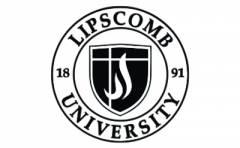Best Educational Leadership and Administration colleges in the U.S. 2025
Best Educational Leadership and Administration colleges in the U.S. for 2025
Boston College offers 2 Educational Leadership and Administration, General degree programs. It's a large, private not-for-profit, four-year university in a small city. In 2022, 76 Educational Leadership and Administration, General students graduated with students earning 52 Master's degrees, and 24 Doctoral degrees.

University of Florida offers 8 Educational Leadership and Administration, General degree programs. It's a very large, public, four-year university in a midsize city. In 2022, 33 Educational Leadership and Administration, General students graduated with students earning 21 Master's degrees, and 12 Doctoral degrees.
Lipscomb University offers 3 Educational Leadership and Administration, General degree programs. It's a small, private not-for-profit, four-year university in a large city. In 2022, 105 Educational Leadership and Administration, General students graduated with students earning 46 Certificates, 40 Doctoral degrees, and 19 Master's degrees.
University of Georgia offers 3 Educational Leadership and Administration, General degree programs. It's a very large, public, four-year university in a midsize city. In 2022, 37 Educational Leadership and Administration, General students graduated with students earning 24 Doctoral degrees, 11 Master's degrees, and 2 Certificates.
University of Maryland-College Park offers 4 Educational Leadership and Administration, General degree programs. It's a very large, public, four-year university in a large suburb. In 2022, 57 Educational Leadership and Administration, General students graduated with students earning 30 Doctoral degrees, and 27 Master's degrees.
University of Hawaii at Manoa offers 2 Educational Leadership and Administration, General degree programs. It's a large, public, four-year university in a large city. In 2022, 24 Educational Leadership and Administration, General students graduated with students earning 23 Master's degrees, and 1 Doctoral degree.

New York University offers 3 Educational Leadership and Administration, General degree programs. It's a very large, private not-for-profit, four-year university in a large city. In 2022, 72 Educational Leadership and Administration, General students graduated with students earning 53 Doctoral degrees, 18 Master's degrees, and 1 Certificate.
Towson University offers 4 Educational Leadership and Administration, General degree programs. It's a large, public, four-year university in a small city. In 2022, 69 Educational Leadership and Administration, General students graduated with students earning 55 Certificates, and 14 Master's degrees.
University of Washington-Seattle Campus offers 3 Educational Leadership and Administration, General degree programs. It's a very large, public, four-year university in a large city. In 2022, 56 Educational Leadership and Administration, General students graduated with students earning 51 Master's degrees, and 5 Doctoral degrees.
Texas Christian University offers 3 Educational Leadership and Administration, General degree programs. It's a large, private not-for-profit, four-year university in a large city. In 2022, 34 Educational Leadership and Administration, General students graduated with students earning 26 Master's degrees, 6 Doctoral degrees, and 2 Certificates.
Find local colleges with Educational Leadership and Administration majors in the U.S.
Educational Leadership and Administration Degree Overview
There are a few things to consider when choosing the best master’s degree in educational leadership for you. Here are some that are important to ask:
- What do I want to specialize in?
- Should I complete the program online or on-campus?
- How long will it take to complete the program?
- Is the program accredited?
Educational Leadership Degree Specializations
Students interested in a specific field or career path should consider a specialization. Common specializations include:
- Educational Leadership and Administration – Teachers specializing in leadership and administration are concerned with general administrative tasks and procedures at educational facilities. Professionals choosing this specialization usually pursue careers as principals or assistant principals.
- Policy Studies in Education – Students specializing in policy studies are typically interested in the legal aspects of education. Professionals choosing this specialization may work as paralegals, attorneys, researchers, and advocates.
- Special Education – A special education specialization prepares educators to work with students with learning disabilities. Professionals choosing this specialization may work as school evaluators, program developers, and teachers.
- Adult and Higher Education – The adult and higher education specialization is best for those interested in developing skills to teach adult learners at the postsecondary level. Professionals choosing this specialty may choose careers such as college provosts, deans of departments, university principals, and career counselors.
- Teacher Leadership – Students specializing in teacher leadership are primarily invested in ensuring teachers have adequate skills to meet the needs of their students. Professionals choosing this specialization may work as career counselors, trainers, or college professors.
Master's Degree in Educational Leadership and Administration
Having a Master’s Degree in Educational Leadership shows employers, other teachers, and the community your passion for the field and establishes credibility. A Master’s Degree in Educational Leadership is a two-year program with courses focused on:
- Human resources
- Program evaluation
- Stakeholder buy-in
- Diversity
- Ethics
- Training and development
- Circular leadership
- All necessary skills for administrative jobs in education
Most Master’s in Educational Leadership degrees cover a broad range of subjects. However, it is possible to specialize in certain programs like the following:
- Leadership
- Global education
- Urban environments
- Higher education
- Independent school leadership
- Grades Pre-K to 12 education
- Administrative support
- Education policy and development
- Human resources
- Education technology innovation
- Data science
Graduate Educational Leadership Degree Coursework
As a Master’s in Educational Leadership degree candidate, you can expect to take a variety of courses. However, there are some courses you’ll find are common across most programs.
Diversity and equity courses
In a leadership role, many people are involved in the education process:
- Taxpayers
- Parents
- Teachers
- Students
- Concerned community members
For that reason, it is important to learn to communicate with people from a variety of backgrounds. Additionally, diversity and equity courses provide case studies about education trends to keep students up to date.
Human resources
Students interested in leading schools and teams may perform any or all of the following:
- Team building exercises
- Perform routine evaluations
- Oral presentations
- Continuing education
- Training lectures
- Recruitment
- Onboarding
- Dissolution of employees working in the school system.
Human resources courses provide students with the skills and knowledge necessary to handle HR situations.
School leadership
In school leadership courses, students analyze real case studies that school districts, classrooms, and teachers have encountered.
Research and data
One course that you’ll see on the syllabus for most master’s degrees in educational leadership programs is research and data. In this course, you’ll study collecting and analyzing data and applying findings to solve practical issues.
How Long Does a Master’s Degree in Educational Leadership Take To Finish?
Program length can vary depending on a variety of factors such as:
- Previous education – Most programs require at least a bachelor’s degree and teaching license before applying. For bachelor’s degree holders in other fields, a teaching program leading to licensure is typically required before attempting the advanced degree.
- Online learning – Online learning programs are not for everyone, so while online learning can help students study more effectively, it is advised that on-campus programs are pursued by potential candidates who desire a more hands-on approach in the classroom.
- Part-time vs full-time learning – Online learners lead busy lives, so there are options for part-time and full-time learning. Full-time learning can cut down the time it takes to complete a degree program, but part-time learning helps students with other professional or personal obligations.
- Accelerated program availability – Master’s in educational leadership programs can greatly vary in length. Some programs take as long as two and a half years, but others take as little as nine months. For students interested in full-time learning, accelerated programs are a great way to jump into administrator roles faster.
Skills Learned in an Educational Leadership Degree Program
Pursuing a Master’s Degree in Educational Leadership equips future leaders with a variety of valuable skills:
- Negotiation
- Recruiting and onboarding
- Leadership
- Education reform
- Curriculum development
- Research and data analysis
- Evaluation
- Inclusion and diversity
- Training
- Strategic planning
- School finance
- Administrative development
- Effective communication
These skills are all critical for principals and other education leaders and ensure leaders are prepared for any scenario.
How Long Will it Take to Get a Master’s in Educational Leadership?
- I am a teacher with a teaching license: If you already have a teaching license, it takes nine months to 2.5 years to earn the degree.
- I have a 4-year degree in another field: If you already have a bachelor’s degree in another field, earning a master’s degree in educational leadership takes nine months to 2.5 years. You may also need to complete a teaching credential program before you can begin your graduate degree. A program that leads to licensure can add an additional 6-12 months of studies before becoming eligible to apply for the degree program.
- I am a licensed teacher but will work while taking courses: If you take classes part-time, expect to spend 2-4 years earning the degree if you already have a bachelor’s degree and a teaching credential.
- I am a licensed teacher but will not work while taking courses: If you take classes full-time or utilize an accelerated program, it is possible to complete the master’s degree in nine months to 2 years.
Admissions Requirements for Graduate Educational Leadership Programs
In order to apply, candidates should prepare the following documentation:
- Bachelor’s degree – Candidates are required to submit proof of a bachelor’s degree with at least a 3.0 GPA to prove they can handle the rigorous coursework.
- Teaching certificate/license – A teaching certificate/license is required. Schools will request a copy as part of the application process. Schools also use this information to assist with advising candidates about reciprocity agreements within their state or to make other program suggestions.
- Official Transcripts – Schools request official transcripts from all previously attended higher education institutions to verify application information, check GPA, and confirm graduation dates.
- Background Check – Background checks are required for all applicants to ensure a safe learning environment for all students both on-campus and online.
- Letters of Recommendation – Some programs require two or three letters of recommendation from other peers or leaders in the education field.
- Personal Statement – Applicants are usually asked to provide a personal statement for the admissions committee to review. You should include the following in your personal statement:
- Why are you interested in the program?
- What experiences have prepared you for the rigorous program?
- What do you intend to do with your degree after graduation?
- Application Fee – Most schools charge a small application processing fee.
How Much Does a Master’s in Educational Leadership Cost?
For online degrees, students can expect to pay anywhere from $8,000-$30,000. For hybrid degree programs, students should anticipate a total cost from $15,000-$60,000.
On-campus programs tend to be more expensive as there are more overhead costs. It’s also important to check if the school of interest charges in-state or out-of-state tuition fees for online learners. Though online programs can be more affordable, some schools charge the same on-campus tuition fee, so be sure to double-check.
Some school systems and private employers offer tuition assistance if your degree helps their organization. Scholarships and grants can also help reduce overall tuition prices, and we’ve outlined some below.
Doctoral Degree in Educational Leadership and Administration
Educators make a difference in students’ lives, and educational leadership expands that impact beyond the classroom. A doctoral degree in educational leadership allows professionals to
- Implement policy
- Improve educational effectiveness
- Innovate
- Drive organizational growth
A doctorate is the highest degree available in any field. A doctoral degree in educational leadership is a three-year program that generally requires 84 credits. Credits can often be transferred in from a previous master’s degree, reducing the time it takes to complete the doctoral program. Graduates will also conduct empirical research within educational practice while preparing their dissertation. In the realm of education, it represents a blend of academic theory and best practices for educational professionals in teaching and policy.
Graduates leave the program with the skills and information needed to make improvements in learning outcomes. Common concentration areas include:
- Higher education administration
- Independent school leadership
- International education policy and management
- Education policy
- Leadership and organizational performance
What Can I Do with A Doctoral Degree in Educational Leadership?
Graduates often find roles in curriculum management or leadership within a school district or school as one of the following:
- Principal
- Administrators
- Superintendent
- Policymaker
With a doctorate in educational leadership, career opportunities are nearly endless.
Types of Educational Leadership Degree Programs
Educational leadership doctoral degree programs are offered in many different pathways and concentrations. Some of the most popular include:
- Leadership in Higher Education – Focus on college and university issues including finance, policy, technology, student services, and addressing the needs of a diverse community of students
- Leadership in Special Education – Focus on professional understanding and training in coordinating special education staff, expanding services and theories of learning, policy, assessment and intervention
- Leadership in PK-12 Schools and School Districts – Focus on strategies for transformational change to curriculum, school culture, and community engagement as well as school district governance, fiscal issues, and staff relations
- Leadership in Digital Transformation – Address implementation of the biggest change agents in education: the technology that students and teachers utilize in the classroom
Graduate Educational Leadership Degree Coursework
Every program offering a doctoral degree in educational leadership sets its own curriculum, but there are some classes that are likely to be included regardless of where you choose to study:
- Leading a culture of learning and inclusion
- Educational leadership and decision making
- Change leadership in a learning organization
- Assessment and evaluation in the learning organization
- Resource Allocation for Student Achievement
- Ethical and legal issues in education leadership
- Schooling in urban environments
- School finance
- Research and independent study in educational leadership
How Long Will It Take to Get a Doctoral Degree in Educational Leadership?
The average period for completion of a doctoral program in educational leadership is three years, though candidates may take longer depending upon whether they pursue their degree on a full-time or part-time basis.
Skills Learned in an Educational Leadership Program
After graduation, students will have gained knowledge in the practice and theory of leadership in education. Some important skills learned will include:
- Employing effective organizational leadership
- Supporting effective teaching and learning for both teachers and students
- Employing management systems within a learning environment
- Shaping and influencing policy in education
- Anticipating legal and ethical considerations in an education environment and acting on them
- Promoting equality and diversity in educational matters
- Development of thoughtful curriculum
Applying to Educational Leadership Doctoral Programs
Applying for admission to a doctoral program in educational leadership is the first step toward earning a doctorate, so it is important to follow these steps:
- Find three schools that best meet professional and personal goals
- Request application materials
- Review materials to determine what each program requires
- Take any standardized examinations required and request those scores be sent to the desired programs
- Request official transcripts from undergraduate programs and master’s programs attended
- Reach out to professors at desired programs to arrange conversations and campus visits, if appropriate
- Write a personal statement
- Solicit recommendations from professionals or other educators in the field
- Submit applications
Admissions Requirements for Graduate Educational Leadership Programs
Each doctoral-level program in educational leadership has its own unique admissions requirements, but here are some common requirements to provide with an application:
- Proof of having attained a master’s degree in an education-related field of study from a regionally accredited institution, with a cumulative GPA of 3.0 or greater
- Submission of official transcripts from your master’s degree program
- Official score on your GRE (Graduate Record Examination), usually requiring a minimum score of 155 or higher
- A professional resume demonstrating a minimum of three years of relevant education experience
- Three letters of reference from people in positions of leadership in education
- A personal statement of professional goals and stated research interest
- Personal interview
How Much Does a Doctoral Degree in Educational Leadership Cost?
The cost of pursuing a doctoral degree in educational leadership varies on several factors:
- School is public or private
- Student is an in-state or out-of-state applicant
- Program is in-person or online
- Reputation of the program itself
Some schools offer locked-in pricing for students who remain continuously enrolled to ensure tuition will not be increased once candidates are in the program, and many offer financial aid or the ability to take on teaching assistant roles in order to minimize costs.
The average cost of a doctoral program is approximately $30,000 per year, which would bring the total for a degree in educational leadership to $90,000. The most affordable programs are offered for less than $30,000 in total.
Earning an Online Educational Leadership and Administration Degree
The great thing about master’s in educational leadership programs is that they are often provided in accelerated formats and available fully online. This enables students to create their own schedules, complete coursework on their own timeline, and continue working full-time while earning their degree.
Students who don’t mind attending campus from time to time may prefer a hybrid program, and studying 100% on-campus is also an option for students who prefer consistent class schedules, hands-on learning, and meeting new friends.
Whatever your personal needs may be, there is a graduate program for you!
Should I Complete Courses Online?
Online courses are flexible and can be completed at your own pace. Though most interactions are solely online, online programs still come with the same faculty, requirements, and resources available to on-campus students.
How Long do Online Courses Take to Complete?
Online courses vary in length, and completion times are based on a variety of factors. Here are some things to consider:
- Hybrid vs online courses/programs – Hybrid courses often require on-campus visits throughout the semester or on weekends. It’s important to consider how that might impact the cost and completion time of your degree program. On average, online and hybrid degree programs take an average of two years to complete.
- Accelerated online courses – Does the program you’re interested in offer accelerated online courses? If so, does it only offer a few courses or a fully accelerated course load? Taking accelerated courses can cut completion time down from two years to nine months.
- How long students have to complete an online course – Some online courses last seven weeks. Others can last 16-18 weeks. It’s important to factor in how long each course takes to know how that may impact completion times. If finishing as quickly as possible is an important factor, it’s best to opt for shorter, accelerated courses.
Educational Leadership and Administration Career and Salary Overview
Anyone interested in earning a degree in educational leadership or administration has plenty of career options to look forward to. Some common outcomes include:
Principal or Vice-Principal: The highest-paid position you can have with a master’s degree in educational administration will be––not surprisingly– an administrative role such as a principal or vice-principal. According to the BLS, elementary, middle school, and high school principals make an average of $98,490 per year with ~5 years of experience.
Superintendent: Although many have a PhD, some superintendents only have a master’s in educational administration. On average, school superintendents make $95,410 under the category of postsecondary education administrators, although they can make significantly more.
Teacher:. Teachers who earn a master’s in EA and remain at the instructional level (meaning you continue to teach students in a classroom and don’t transition into an administrative role) generally make less than those who go on to become educational administrators.
----
With a Master’s Degree in Educational Leadership, so many new positions in education become available. Some positions include:
- Principal
- Dean of Students
- University Registrar
- Department Chair
- University President
- School Superintendent
- Professor
- Education Researcher
- Career Counselor
- Training Manager
- Private School Director
- College Provost
Educational Leadership Job Projections
According to the Bureau of Labor Statistics, instructional leadership positions are projected to grow at a rate of approximately 10% from 2020 to 2030. The growth of career opportunities for education administrators is projected at approximately 8%.
Though many of these positions are available to those who have attained a master’s degree, a doctoral degree and experience can lead to promotion into even higher positions. The growth in educational opportunity is a projection and depends upon many variables. Some are tied to the specific workplace, as school hiring often depends upon budgets and student enrollment. Post-secondary opportunities could grow faster with increased college admissions.
Educational Leadership Career Paths
Positions in the education administration field are projected to grow 4%, and many require at least a master’s degree. A few of those positions are outlined below:
| Career | Salary | Projected Job Growth (2020-2030) | About the Position |
| Administrative Services Manager | $98,890 | 9% | Professionals work in organizations, schools, and other corporations to plan and direct administrative objectives. They supervise and provide clerical services, uphold standards, and recommend policy changes. |
| Elementary, Middle, and High School Principals | $98,490 | 8% | Principals oversee school activities, staff, and evaluate teacher performances. |
| Human Resources Manager | $121,220 | 6% | Human resources managers complete employee screening, recruiting, hiring, termination procedures, oversee benefit programs, and consult about employment issues. |
| Postsecondary Teachers | $80,560 | 12% |
Postsecondary teachers work in college and university settings conducting research and delivering lectures. They also develop and modify curriculum and instruction efforts. |
Earning a Master’s Degree in Educational Leadership
To earn a master’s degree in educational leadership, most programs require 30 credits or 10 master’s-level courses. It could take anywhere from nine months to 2.5 years to earn your degree. Course topics can vary depending on specialization, but students should expect courses in:
- Project management
- Negotiation
- Human resources
- Ethics
- Diversity
What is the Expected Salary of Someone with a Master’s Degree in Educational Leadership?
Because of the variety of educational leadership careers, salaries do vary. However, a principal with a Master’s in Educational Leadership can expect to make anywhere from $84,570 to $96,680. Postsecondary education administrators can expect a salary of ~$95,410 per year. School and career counselors earn $57,040 annually, according to the BLS.
What is the Expected Salary of Someone with a Doctoral Degree in Educational Leadership?
According to a salary and benefits study4 conducted by AASA (School Superintendent’s Association) for the school year 2019-20, the base salary for a school superintendent with 300-999 students is $117,500. That amount increases proportionally with the number of students in attendance.
- High school principal median salary range: $87,000-$115,000
- Middle school principal median salary range: $84,150-$110,750
- Teacher without a graduate degree: $38,000-$43,823
In addition to salary, the study revealed that 92% of those in doctorate-preferred positions also received medical and hospital health insurance. Others received dental insurance, optical insurance, and disability insurance as well as post-retirement health insurance.
Career Resources for Educational Leadership Students
Looking for career resources? Check out the organizations below for additional career training, certification options, job boards, mentoring opportunities, and articles.
Educational Leadership and Administration FAQ
List of all Educational Leadership and Administration colleges in the U.S.
| School | Average Tuition | Student Teacher Ratio | Enrolled Students | |
|---|---|---|---|---|

|
Boston College Chestnut Hill, MA | 17 : 1 | 15,287 | |

|
University of Florida Gainesville, FL | 21 : 1 | 55,211 | |

|
Lipscomb University Nashville, TN | 19 : 1 | 4,704 | |

|
University of Georgia Athens, GA | 19 : 1 | 40,607 | |

|
University of Maryland-College Park College Park, MD | 22 : 1 | 40,792 | |
Article Sources
- Bureau of Labor Statistics
- https://www.lamar.edu/education/educational-leadership/index.html
- https://www.lamar.edu/education/educational-leadership/online-master-of-education-degrees/med-educational-administration/index.html
- https://www.liberty.edu/online/education/masters/med/higher-education-educational-leadership/
- https://rossier.usc.edu/programs/doctoral/ed-leadership-online/
- https://www.gse.upenn.edu/academics/programs/school-leadership-masters-principal-certification
- https://www.uta.edu/academics/schools-colleges/education/degrees-certifications/accelerated-online
- https://gsehd.gwu.edu/programs/masters-educational-leadership-and-administration
- https://education.nova.edu/masters/educational-leadership.html
- https://peabody.vanderbilt.edu/programs/independent-school-leadership-med/
- https://onlinedegrees.uwf.edu/online-degrees/m-ed-masters-educational-leadership/
- https://gsep.pepperdine.edu/ms-leadership-prek-12-education/
- https://gsehd.gwu.edu/articles/what-can-i-do-educational-leadership-degree
- https://www.educational-leadership-degrees.com/faq/is-a-masters-in-educational-leadership-worth-the-time-and-cost/
- https://www.noodle.com/articles/why-you-should-consider-a-masters-in-education-leadership
- https://www.topeducationdegrees.org/faq/what-is-a-masters-in-educational-leadership/
- https://www.strose.edu/higher-education-leadership-and-administration/
- https://online.gwu.edu/master-arts-educational-leadership-and-administration
- https://education.uoregon.edu/data-science-specialization-educational-leadership
- https://gradschool.creighton.edu/programs/masters-degrees/education/educational-leadership
- https://www.theptc.org/
- http://www.ascd.org/about-ascd.aspx
- https://www.ccl.org/leadership-solutions/industries-sectors/education/
- https://iel.org/
- https://odd-fellows.org/programs/education-foundation/christine-smith-graduate-studies-scholarship/
- https://www.fau.edu/education/students/scholarships/el/
- https://education.msu.edu/development/endowed-funds/
- AASA, The School Superintendent’s Association
- The Bureau of Labor Statistics
- U.S. Department of Education
- https://www.aasa.org/uploadedFiles/AASA-Salary-%20Benefits-Non_membership.pdf











